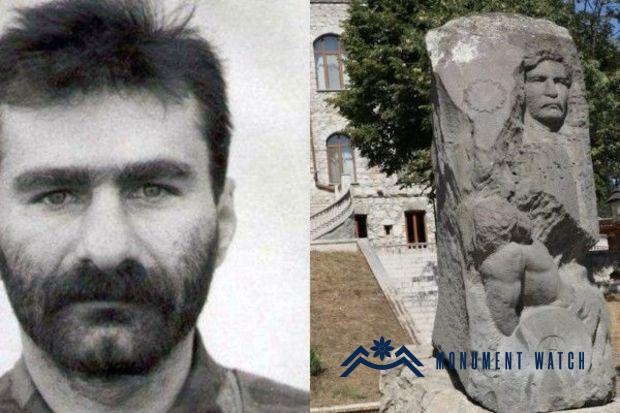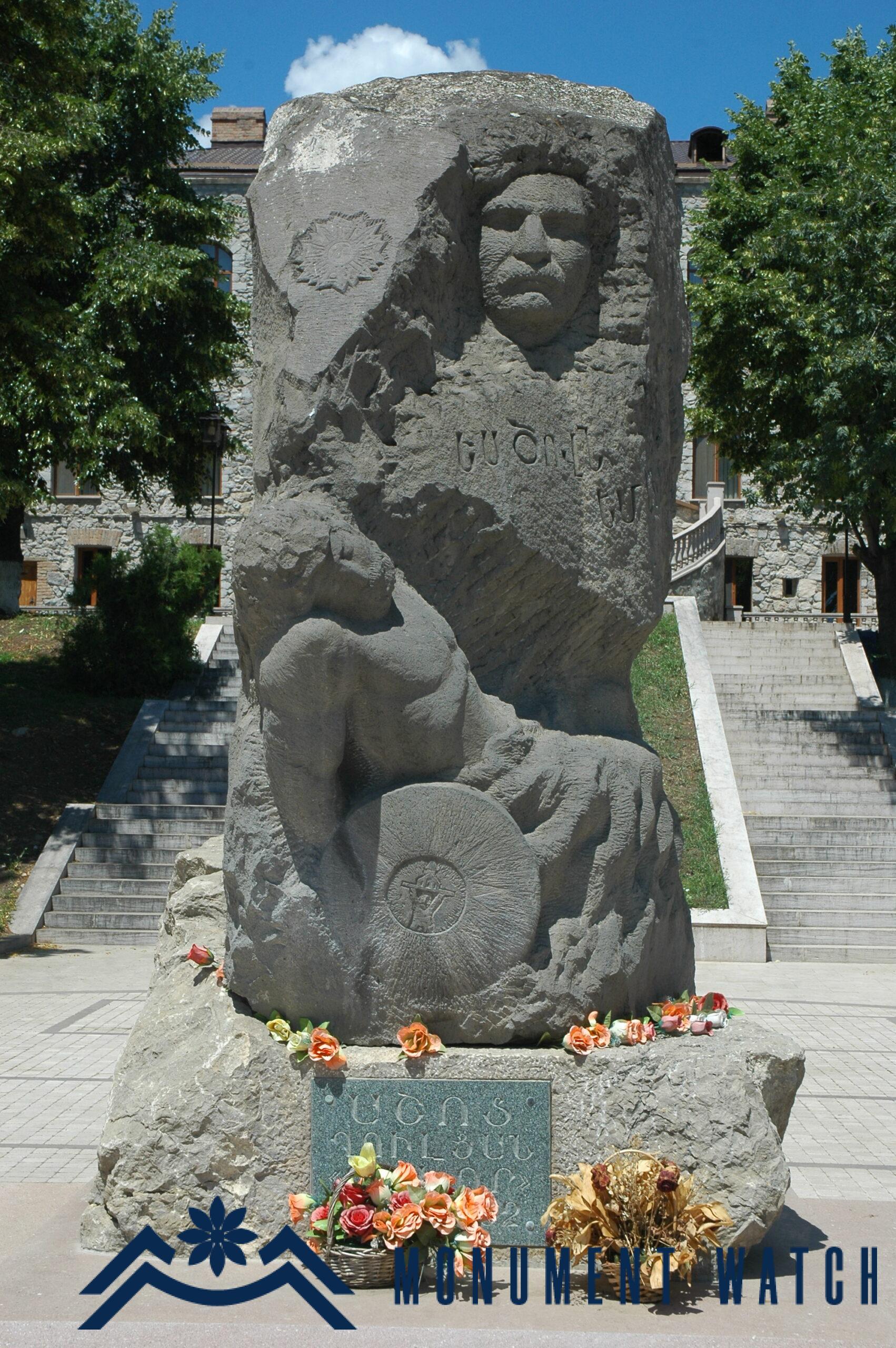In the occupied city of Stepanakert, Azerbaijan destroyed the memorial stone of Ashot Ghulyan, a hero of Artsakh
In early February 2024, reports surfaced from an Azerbaijani telegram channel indicating that the memorial stone of Ashot Ghulyan (Bekor) had been destroyed by Azerbaijani forces. This memorial was crafted by sculptor Yuri Samvelyan as part of the 1996 Artsakh Annual Symposium.
Following the conclusion of the symposium, the monument was initially installed in the children's park of Stepanakert. However, between 1997 and 1998, it was relocated to the park named after Ashot Ghulyan. In the wake of the military operations of 2020, efforts were made to renovate the park and the surrounding area of the memorial stone. The monument stands as a massive boulder of basalt, symbolically echoing the name of the hero "Bekor." Atop this imposing rock emerges the bust of Ashot Ghulyan, seemingly emerging from the rugged terrain. Carved at the base of the rock is a depiction of a wounded soldier, holding a shield protectively before him. At the heart of the shield, a sculpture of Saint Hovhannes Mkrtich of Gandzasar holds prominence, with a miniature representation of the church's dome atop his head. Engraved upon the monument is Ashot Ghulyan's beloved phrase, "I love the sea".
The hero, as mentioned in his interviews, expressed his aspirations to build a ship and embark on a journey around the world in times of peace.
The deliberate and public destruction of the monument, along with its widespread dissemination, serves as a stark indication of Azerbaijan's systematic policy aimed at eradicating monuments from the period of Artsakh's independence.
Our response
The open destruction of the monument flagrantly violates Article 4 of the 1954 Hague Convention for the Protection of Cultural Property in Time of Armed Conflict, which explicitly prohibits acts such as vandalism, theft, robbery, misappropriation, hostilities, and reprisals against cultural heritage.
Furthermore, this destruction directly contravenes the decision of the International Court of Justice of The Hague on December 7, 2021. According to this decision, "Azerbaijan is obliged to take all necessary measures to prevent and punish acts of vandalism and desecration carried out against Armenian cultural heritage" (International Court of Justice, Application of the International Convention on the Elimination of All Forms of Racial Discrimination (Armenia v. Azerbaijan), 7 December 2021, No. 2021/34).
The "Convention Concerning the Protection of the World Cultural and Natural Heritage" established by UNESCO in 1972 regards the destruction of any people's heritage as a profound loss for the collective wealth of all humanity. It underscores the necessity to safeguard the unique and intrinsic values of cultural and natural heritage.
Article 6 of this convention emphasizes the critical importance of protecting these exclusive values, emphasizing that the destruction of cultural and natural heritage impoverishes not only the affected community but also diminishes the shared heritage of all peoples around the globe. According to Article 8 of the Rome Statute, which established the International Criminal Court, in occupied territories, it is prohibited to intentionally direct attacks on structures dedicated to religion, education, art, science, or charitable purposes, as well as historical monuments and hospitals, unless they constitute military objectives (https://www.icc-cpi.int/sites/default/files/RS-Eng.pdf).

